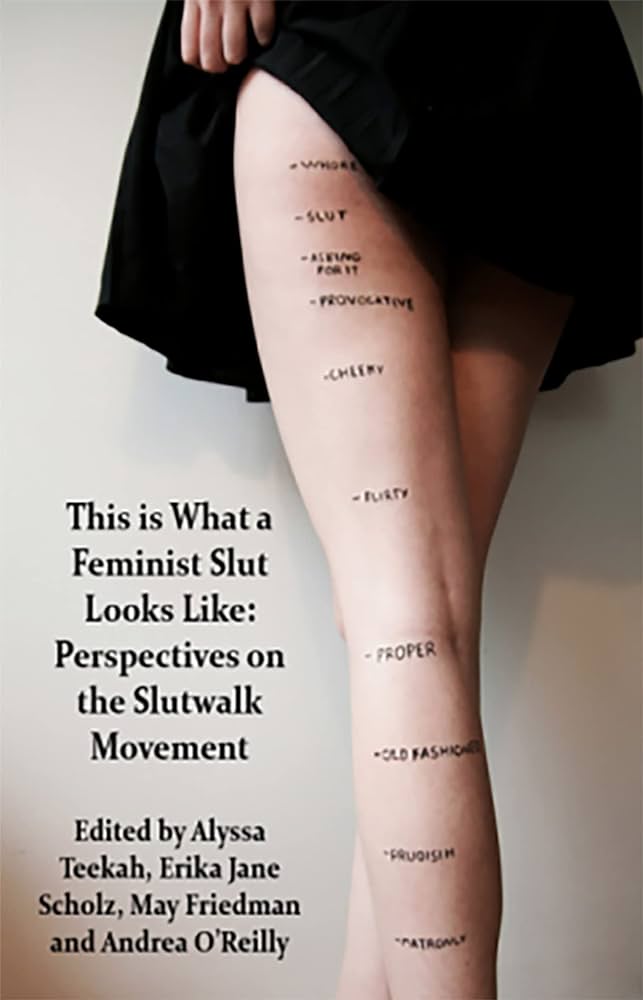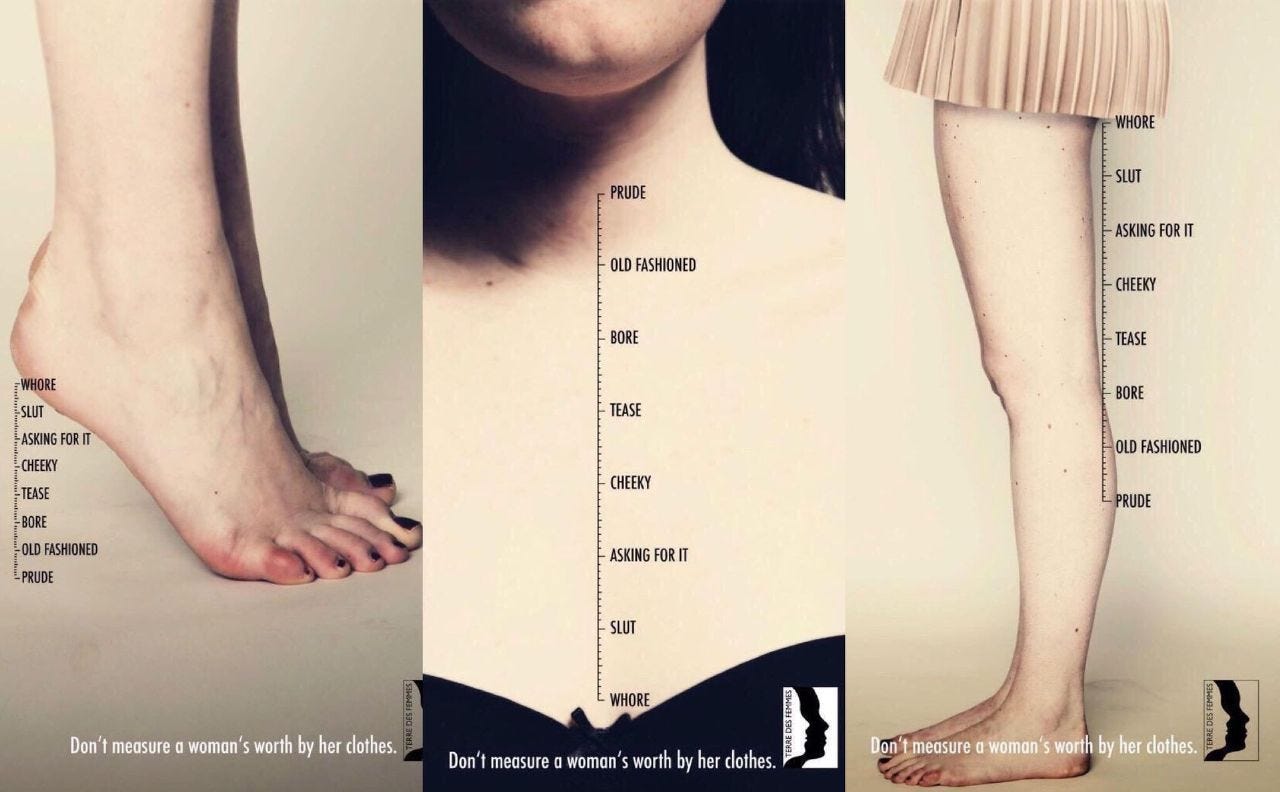 If you’ve been online in the last 3 months, you’ve probably seen the SlutWalk phenomenon. If not, a quick recap: Toronto Police Constable Michael Sanguinetti said “women should avoid dressing like sluts in order not to be victimized”. The Toronto SlutWalk was organised in protest, but was followed by protests in many cities across the world.
If you’ve been online in the last 3 months, you’ve probably seen the SlutWalk phenomenon. If not, a quick recap: Toronto Police Constable Michael Sanguinetti said “women should avoid dressing like sluts in order not to be victimized”. The Toronto SlutWalk was organised in protest, but was followed by protests in many cities across the world.
This has been accompanied by countless debates (most of them ridiculous) such as whether it’s appropriate to call it SlutWalk, whether this simply plays into some madonna/whore dichotomy and the rest. Here, Amanda Marcotte has been the voice of reason and I recommend her FAQ about the “appropriateness” of slutwalks.
Of course that wasn’t the worst of it: British Conservative MP Louise Bagshawe said it “lionises promiscuity”. Finally, the movement has often been portrayed as if the goal is to reclaim the term “slut”, in a similar way to the LGBT movement reclaiming “queer” from a term of abuse to a positive term.
I can’t speak for anyone but myself. Perhaps many of the attendees, supporters and even organisers consider it as reclaiming. But to me, that misses the point by a mile. The point of slutwalks (or the point I think they should have) is to protest the very notion of slut as a label that can be attached to a woman. The whole point of sluthood, the reason why it’s so destructive and why it makes it so much harder for victims of rape is that it is extremely nebulous. It can basically be attached to any woman at any time for any reason. What constitutes a “slut” is subject only to the current situation, and whether the persion wielding the term wishes to denigrate his/her female opponent or not. Here’s the money quote — a list from the homepage of SlutWalk Toronto called “Why I or Other Women I Know Have Been Called Sluts”:
Slut=You’re wearing the same dress as me
Slut=You won’t have sex with me
Slut=You will have sex with me
Slut= You’re too sexual
Slut=You openly talk about sex/You are knowledgeable about sex
Slut=You gave your partner oral sex
Slut=You’ve had sex with too many people
Slut=You’re too young to have sex
Slut= I don’t like you/ I’m mad at you
Slut= You’re ugly
Slut= You’re showing too much skin (good or bad)
Slut= You do sexual things I wouldn’t do (ie: bondage)
And it’s definitely true that women can be called sluts for NOT wanting to have sex with someone. I don’t think it’s being used ironically, in many cases it’s probably literal: “that woman won’t sleep with me but presumably has slept with others…slut”. That’s the problem.
Finally, Amanda Marcotte (again) mentioned the most significant point in this post. A defining feature of the label slut is that it is often applied retroactively to any victim, pinpointing any behaviour that may not have been considered “slutty” in advance. As per Marcotte’s example, consider this scenario: A hetero woman who meets a guy, say on an online community. After some talking they meet in real life at a bar. A few hours and some drinks follow and they decide to go back to his place. There’s definite sexual tension and the woman still hasn’t made up her mind about whether she will have sex with the guy (whether it’s the right time, whether she wants to etc).
Now, statistically speaking, in most cases nothing bad will happen. In fact this is how a very large proportion of relationships probably start. Let’s say a relationship ensues. Fast forward two years and the woman is telling someone how she met her partner. She explains the italicised scenario and nobody thinks she did anything irresponsible or “slutty” because things turned out well. People probably aren’t likely to even think her behaviour was anything but normal, the above scenario is a pretty normal evening.
However, in a parallel universe where this man rapes her, the very same italicised scenario will be used as evidence she was irresponsible and a slut. The slutty behaviour of victims magically travels back in time to attach itself to any behaviour that’s needed if someone is looking to victim-blame. Of course there are some cognitive biases at play. We tend to do this for all situations thanks to something called hindsight bias. If something bad happens humans get an “I knew it all along” mentality. But it’s particularly eggregious in cases of the slut label (or even in our case the label of “irresponsible” behaviour) being used to victim-blame. It also has some parallels in the fallacies employed by many pseudosciences: the theory is retrofitted to the data after the fact. People generally don’t lay out what they mean by “slut” ahead of time, they just “know it when they see it” afterwards.
This is why I think slutwalks are about a lot more than the “mere” reclaiming of the term. It’s not just about that very word (intense though it may be). I see it as a protest of the very notion that someone gets to label a woman’s behaviour in such a way. That’s what a protest against victim-blaming is really about.





0 Comments